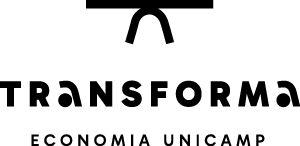In a detailed and comprehensive analysis, economists Marco Antonio Rocha, Pedro Romero Marques, José Bergamin, Lucca Henrique Rodrigues, Luiza Nassif, and Pedro Rossi present the policy brief titled “What is the Development Project of the Lula 3 Government? Reflections on a New Paradigm for Industrial Policy.” The brief examines the political-institutional framework necessary for constructing an economic and industrial development strategy in Lula’s third administration, taking into account recent shifts in the international debate.
Over the past fifteen years, developed nations have revisited and updated their industrial policies, incorporating new technological paradigms and responses to climate challenges. These policies aim not only at sectoral competitiveness but also at broad structural transformation, including digitalization and environmental sustainability. In the Brazilian context, these guidelines highlight the need for adaptation and innovation in industrial policy to overcome the historical constraints of the center-periphery relationship and promote sustainable socioeconomic development.
The analysis reveals that Lula’s third administration proposes not merely a revival of economic and industrial development policies but also a significant modernization of these policies. The new practices include mission-oriented industrial policies targeting specific challenges, such as digitalization and the expansion of pharmaceutical supply, coupled with a greater emphasis on demand-side instruments, such as public procurement. This approach reflects an effort to coordinate cross-cutting actions and establish easily communicable goals for society.
The brief highlights initiatives such as Nova Indústria Brasil (NIB) and the Programa de Aceleração do Crescimento (PAC), which, despite their promise, still face challenges related to interinstitutional alignment and funding. The NIB, for instance, outlines six missions focused on sustainability, health, infrastructure, digitalization, bioeconomy, and national sovereignty, seeking to modernize Brazilian industrial policy and align it with emerging global trends.
However, the brief also identifies significant limitations. The fragmentation of development initiatives across various ministries and government agencies raises concerns about the administration’s ability to construct a coherent and integrated long-term agenda. The need for predictable and sustained financing is another critical issue, particularly in light of the new fiscal framework that limits the state’s investment capacity.
In terms of implementation, the Nova Indústria Brasil (NIB) stands out for its potential to foster coordination among different government bodies, proposing a mission-oriented neoindustrialization strategy. This approach seeks to combine investments in innovation, sustainability, and socioeconomic inclusion, promoting productive development aligned with contemporary demands and the transition to a green economy.
The brief concludes that, while significant challenges remain, the initiatives of Lula’s third administration represent an important step forward in building a more modern and integrated economic and industrial development strategy. The promotion of mission-oriented industrial policies, the strengthening of national production chains, and the coordination of cross-cutting actions are crucial steps in addressing structural challenges and fostering more balanced and sustainable development in Brazil.
This dissemination aims to inform and engage society about the efforts and challenges of the Lula 3 administration in constructing a new development paradigm, emphasizing the importance of public-private cooperation, technological innovation, and environmental sustainability as pillars of a robust and inclusive development strategy.

